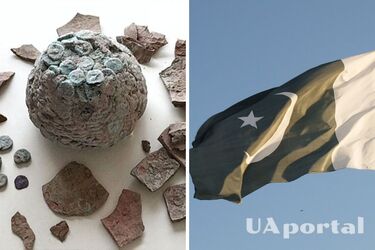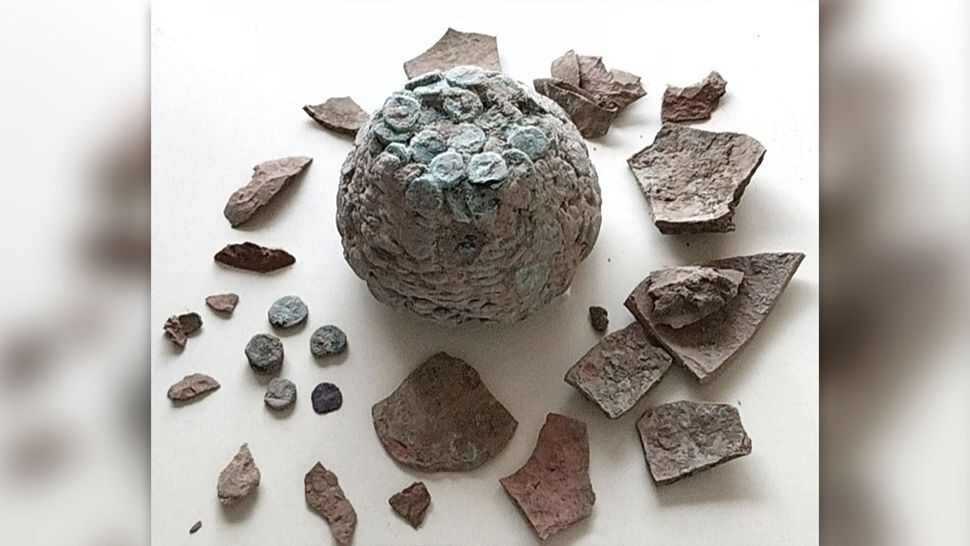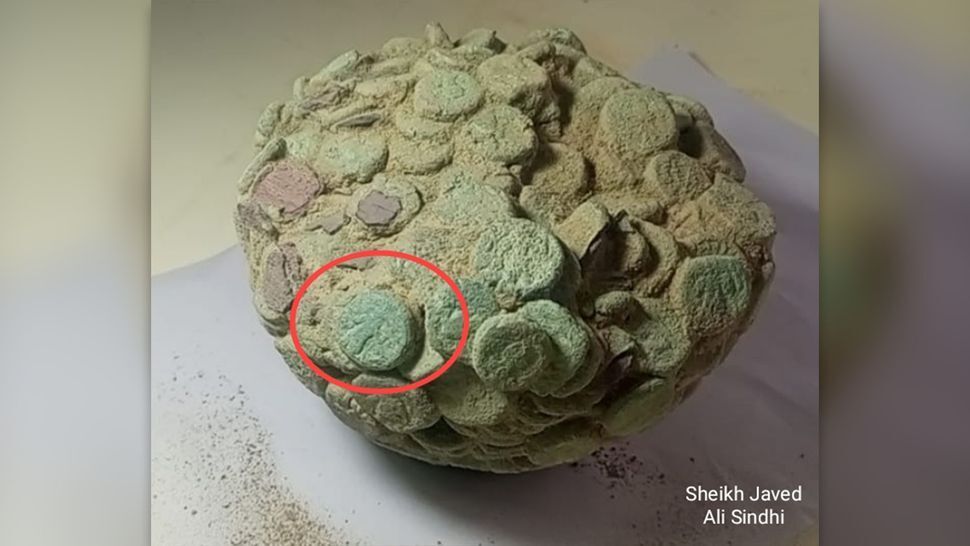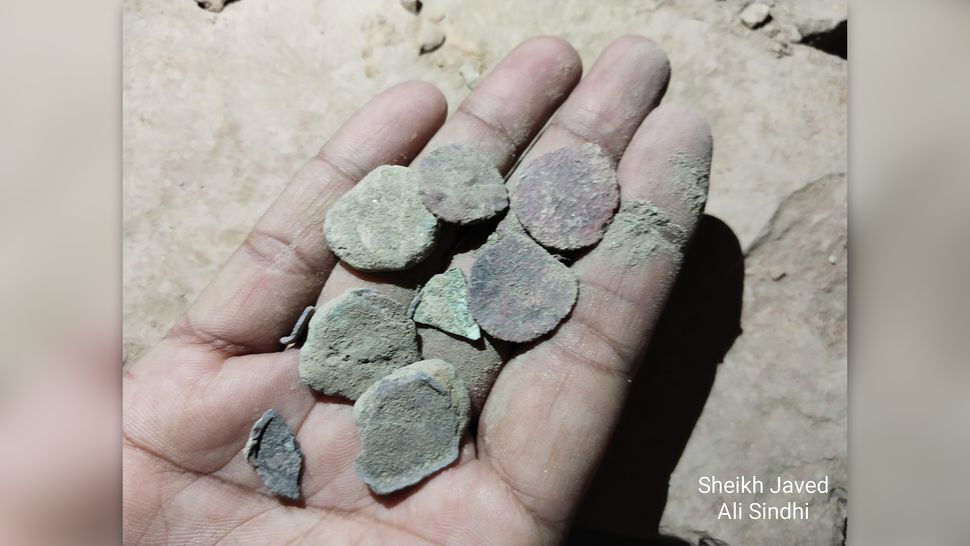2000-year-old coin cache discovered in ancient Buddhist temple in Pakistan (photo)

Archaeologists in Pakistan have discovered an extremely rare treasure trove of copper coins, believed to be more than 2000 years old. The discovery was made in the ruins of a Buddhist shrine built on the even more ancient site of Mohenjo Daro.
The coins and the shrine, known as a stupa, are believed to date from the Kushan Empire. It ruled the region from about the second century BC to the third century AD, Live Science reports.
The temple is located among the vast ruins at Mohenjo Daro in what is now southeastern Pakistan, which date back to around 2600 BC and originate from the ancient Indus Valley or Harappan civilization, one of the oldest civilizations in the world.
Read also: Human remains 10,000 years old discovered in Vietnam for the first time (photo)
The coins will now be thoroughly cleaned in an archaeological laboratory. The newly found coins are colored green because copper is corroded by air.

Centuries of corrosion also fused the coins into a single piece that weighs about 12 pounds (5.5 kilograms). But several coins were found separately. According to the researchers, the fused hoard probably consisted of 1000-1500 individual coins.

Some of the outer coins of the merged hoard depict a standing figure, which researchers believe is probably a depiction of a Kushan king.

As a reminder, the perfectly preserved remains of a man who died in the tsunami 3600 years ago were found in Greece.
If you want to get the latest news about the war and events in Ukraine, subscribe to our Telegram channel!
